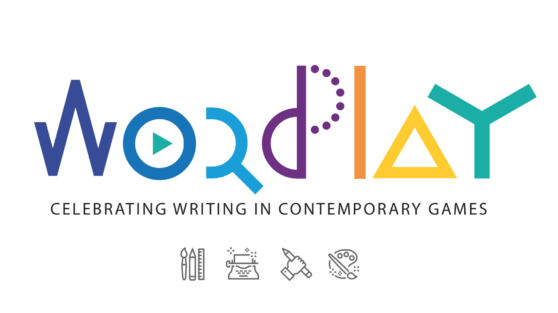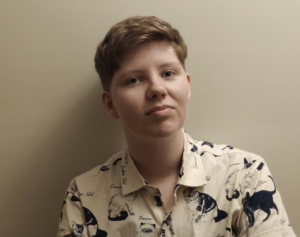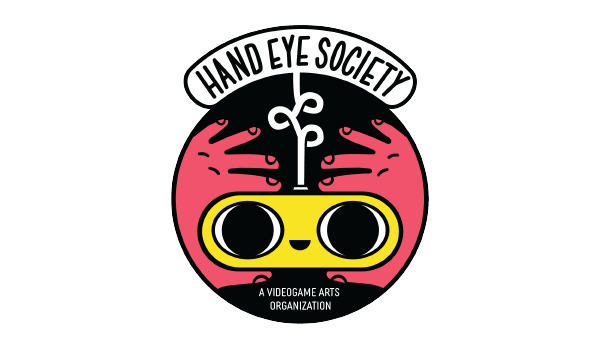
Here are our WordPlay 2020 Speakers
 The 8th annual WordPlay Festival takes place Saturday, November 21th & 22th 2020!
The 8th annual WordPlay Festival takes place Saturday, November 21th & 22th 2020!
Sat. November 21th, Sunday November 22th
Hello folks, it’s been getting colder and you know what that means, WordPlay time! Returning this year we’re back to the 2 day format, big thanks to Ontario Creates for making it possible! Below are our stunning speaker line up for this year, bringing you some really amazing content. We’re looking forward to spending some time together and learning together about all the new and amazing things going on with words in the game world!

Xalavier Nelson Jr. (he/him)
Self Funding Smaller, Better Games
Part motivational talk and part discussion of his own development process, Xalavier Nelson Jr. shows how precise, focused game design can be used to make compelling games at minimal budget scales. What do you do if the talk of platforms and publishers turns out to be empty, or you don’t own a home to take a mortgage out on for your million-dollar indie darling moonshot? You make games cheaper than them, in ways that are healthier for our communities, more sustainable for our finances… and better than anything they could achieve in a similar sphere.

Josh Labelle (he/him)
An Opportunity To Build Something: Grief and Tabletop Gaming
In January 2019, the dungeon master of my long-time D&D campaign died suddenly. The rest of us found ourselves fumbling for words in a new context, trying to navigate our grief together. We knew playing tabletop would never be the same for us. Could we even continue playing together at all? What would it look like with our stalwart DM gone? To feel our way through the experience, we started playing different kinds of games, including GM-less ones like Avery Alder’s The Quiet Year (from which this talk takes it title). We learned that when you abandon the trappings of initiative orders and dice rolls, tabletop roleplaying games are ultimately conversations. They teach you how to be attentive to each other’s needs and pain and how to feel out the boundaries between self and community. They can become a space for experiencing the joys of being together and for processing something as big as grief. This talk is about how that process worked for us and about the possibilities that open up when we’re willing to untangle difficult emotions together through play.

Druv Jani (he/him)
The Concentric Fictions of a Generous History
Folk theatre in India, and across south east Asia has slowly withdrawn from its once dominant public role. Such theatre enacted on the street and in the town square, and often performed by traveling troupes and mendicants, was once a bulwark of anti-colonial agitation a mere hundred years ago. Comprising a variety of theatre forms and storytelling methods and born in various traditions and languages all across the subcontinent, (Nautanki, Yakshagana, Jatra and Bhavai to name a few), It has always been performed irreverently, with great improvisation to challenge prevalent hegemony in an inventive reenactment of familiar myths and tales. The talk will attempt to demonstrate how Interactive Fiction is indeed a natural extension of a particular form of theatre, especially when practiced with the same lingual variety and disseminated with the same generosity as the street-plays of yore. And how such improvisational form and the de-authored narratives are perfect mediums for challenging authority and creating exquisite and intricate dialogue around difficult histories. The intent of the presentation is to argue that by borrowing from older traditions, Interactive fiction might become a site for strident counter cultural protest.

Kinsey Erickson (she/her)
40k Slow Burn Rivals to Lovers: Why You Should Hire Fan-fiction Authors to Write Your Game
This talk will discuss the history and merits of fan-fiction and break down pop culture’s (often gendered) stigmas against it as a medium. It will examine certain aspects of fan-fiction and fandom and relate them to games writing, such as intense familiarity with a world and its lore, a strong understanding of the aspects of writing and world-building that fans love and want more of, deep understanding of player/reader agency (as seen in fan-fiction that stars the “reader” as a character), community building and engagement (such as fan-fiction Big Bangs and zines), and more. It will also discuss what classifies a piece of writing as “fan-fiction” as opposed to extended writing in an IP (i.e. the Halo novels) and how this distinction is often blurred.

Sharang Biswas (he/him)
The Power of Single-Player Analogue Roleplaying Games
Single-player analogue roleplaying games occupy an intersectional space: like choice-based gamebooks and interactive fiction, they prompt a solo player to make decisions; like prose fiction or poetry, they rely on written text to enchant and inspire players; like tabletop roleplaying games, they demand a co-creative attitude, where the text contains gaps, unable to realize a complete story without free-form, creative input from the player. While often overshadowed by their showier, multiplayer cousins (such as Dungeons & Dragons and the like), single-player- roleplaying games have been enjoying greater prominence recently (perhaps as a result of social distancing). For example, Jeeyon Shim & Kevin Pulp’s Wait For Me funded on Kickstarter in forty minutes, and made almost five times its initial goal, while Tim Hutchings’ Thousand Year Old Vampire swept at the Ennie Awards, one of the most prestigious award ceremonies in the tabletop RPG industry. Additionally, creators are increasingly innovating on the form and content. Hutchings asks the player to journal their responses, but also erase their writing as the player’s protagonist loses their memory. Anna Anthropy, in Tavern at the End of the World, expects players to code all their language in euphemism and hidden meaning, lest a fictional colonial ruler glean your rebellious intent. Lucian Kahn’s upcoming Consumable Me, suggests that players literally burn some of the material they write down. In a sense, these games can additionally be thought of as a sort of “speculative fiction”, not in that they necessarily rethink our societal and technological conventions in the manner sci-fi and fantasy fiction do, but that they force reader-players to speculate. The “what-if” and “how about” questions that provoke reflection and spawn legions of fan-fiction stories are made explicit in the text, and the state of reflexive interactivity occurs during play. Single-Player Roleplaying games, thus, are coming to define a new genre of art (of games, of literature, of hypertext). In this talk, I’ll be drawing on various case studies, scholarship from authors such as Evan Torner and Espen Aarseth, and some of my own design work to discuss the power and potential of this growing genre of text-based games.

Kaelan Doyle Myerscough (they/them)
Collaborative Critical World-building in 30 Minutes or Less
In this talk I will discuss how the methods by which we conceptualize fictional worlds shape what those worlds look and feel like. I will also discuss some strategies and methods for building more nuanced, vivid and relevant story worlds within a game design context. This talk is predicated on a feminist, anti-racist, queer and anti-capitalist approach to world-building that argues that mainstream world-building processes recreate problematic assumptions about people and society; by creating new and radical methods for building worlds, we can learn to think differently about the world we live in as well.



